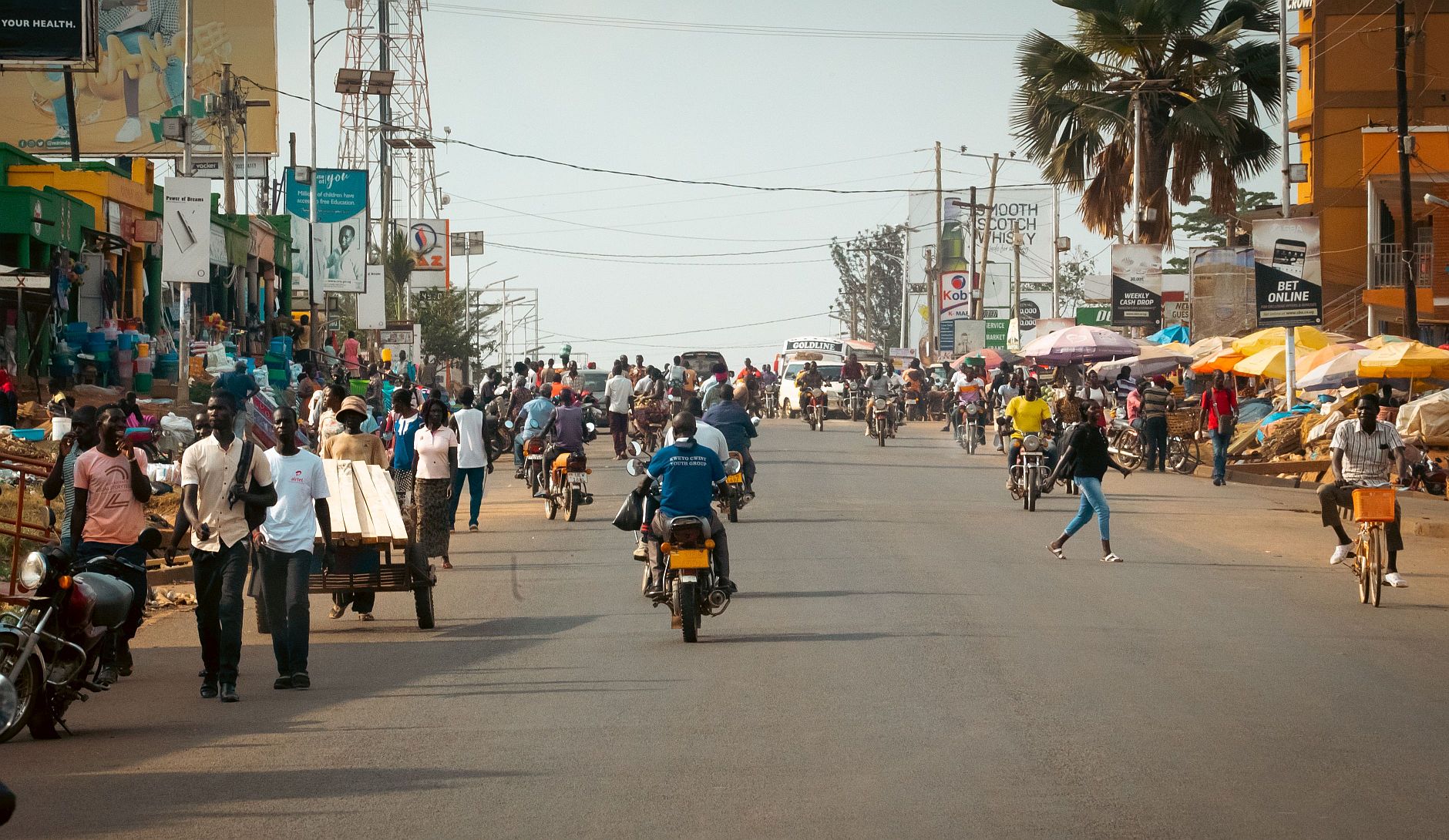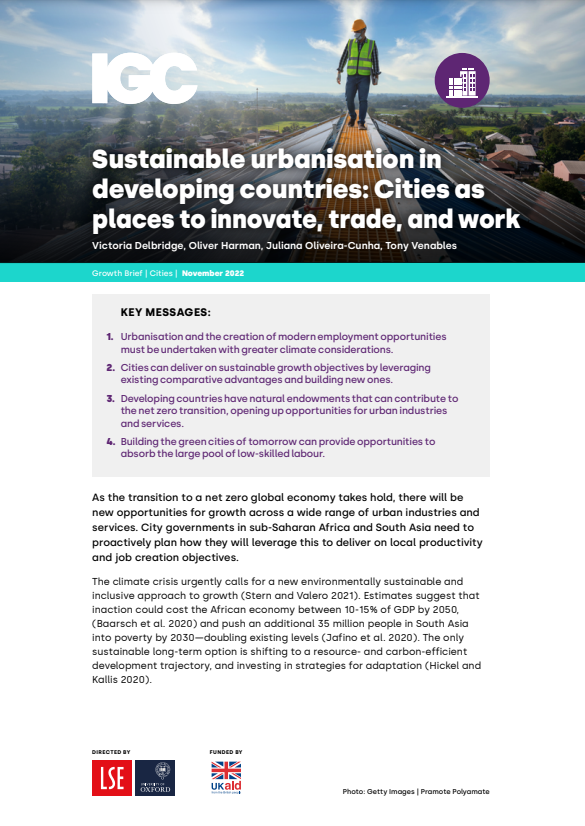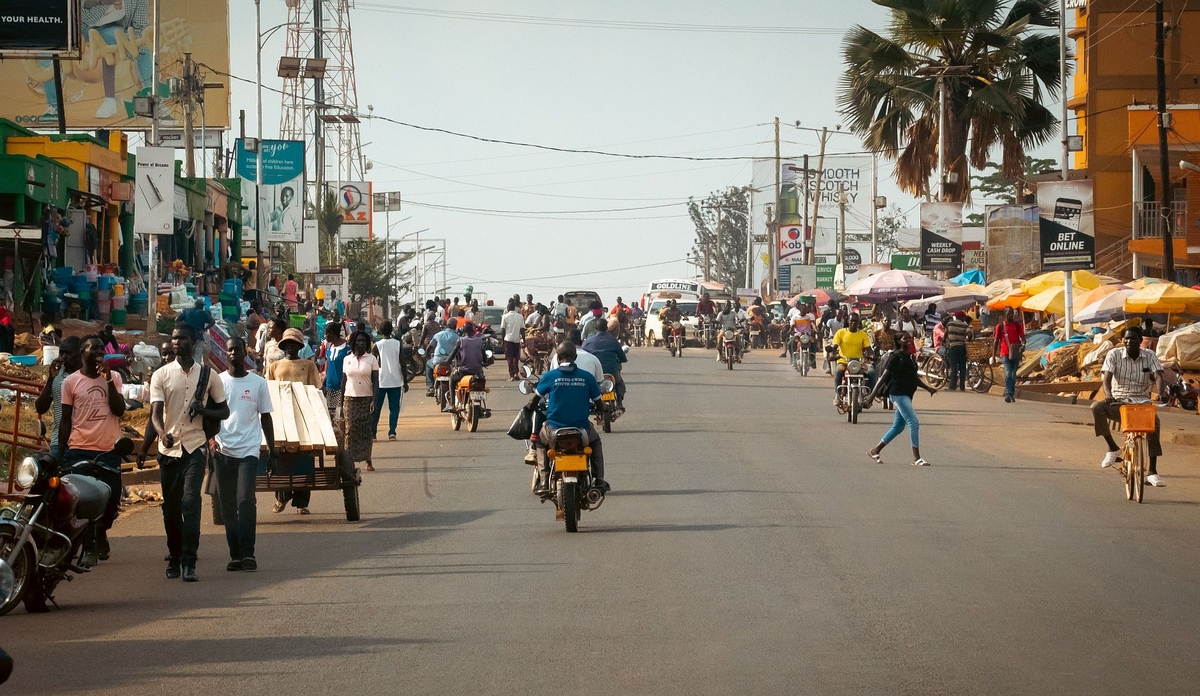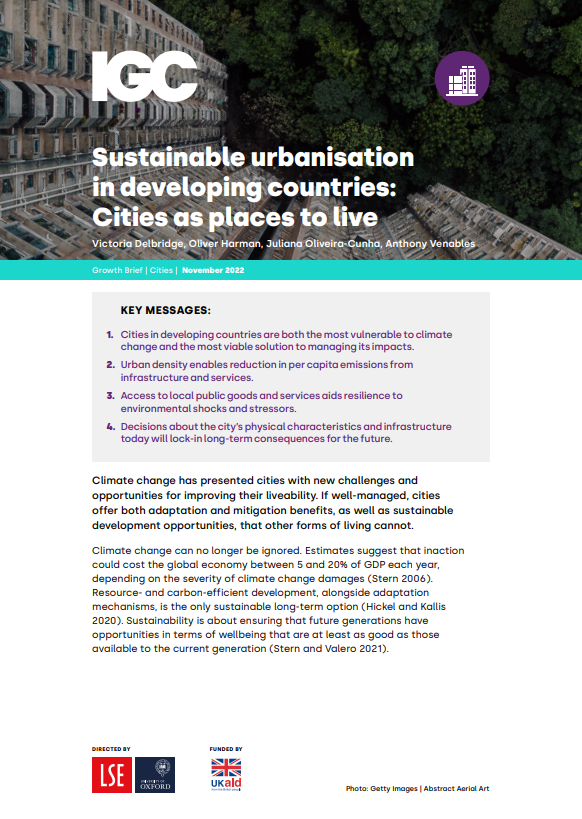- Who We Are
- How We Work
- Regional / Country Initiatives
- Legacy
- Core Themes
- Working Groups
- Portfolio & Results
- Newsroom
- Resources
Cities as Places to Innovate, Trade, and Work

As the transition to a net zero global economy takes hold, there will be new opportunities for growth across a wide range of urban industries and services. City governments in sub-Saharan Africa and South Asia need to proactively plan how they will leverage this to deliver on local productivity and job creation objectives.

The brief Cities as places to innovate, trade, and work, published by the International Growth Centre, focuses on the vital role of cities in national growth, and the opportunity to take hold of emerging global industries and trends. It discusses how to do current approaches more sustainably, implement new sustainable approaches, and adjust to shrinking opportunities in fossil fuels.
The climate crisis urgently calls for a new environmentally sustainable and inclusive approach to growth. Estimates suggest that inaction could cost the African economy between 10-15 per cent of GDP by 2050, and push an additional 35 million people in South Asia into poverty by 2030 — doubling existing levels. The only sustainable long-term option is shifting to a resource- and carbon-efficient development trajectory, and investing in strategies for adaptation.
Cities in developing countries should identify comparative advantages, as well as strategically build new ones, to leverage climate action as an economic opportunity. These include contributing to the design or production of goods and services underpinning the net zero transition, and leveraging natural endowments in the renewable energy sources needed to fuel cleaner growth and attract green firms.
Climate action at the city level can also create opportunities for low-skill employment, which will continue to constitute most of the urban jobs, primarily in the informal sector. Developing countries need to embrace bold and transformative urban reforms, having a national strategic focus on cities and their green innovation, trade, and employment potential.
Key messages:
1. Urbanisation and the creation of modern employment opportunities must be undertaken with greater climate considerations.
2. Cities can deliver on sustainable growth objectives by leveraging existing comparative advantages and building new ones.
3. Developing countries have natural endowments that can contribute to the net zero transition, opening up opportunities for urban industries and services.
4. Building the green cities of tomorrow can provide opportunities to absorb the large pool of low-skilled labour.
1. Urbanisation and the creation of modern employment opportunities must be undertaken with greater climate considerations.
2. Cities can deliver on sustainable growth objectives by leveraging existing comparative advantages and building new ones.
3. Developing countries have natural endowments that can contribute to the net zero transition, opening up opportunities for urban industries and services.
4. Building the green cities of tomorrow can provide opportunities to absorb the large pool of low-skilled labour.

About IGC:
The International Growth Centre (IGC) works with policymakers in developing countries to promote inclusive and sustainable growth through pathbreaking research. Based at LSE and in partnership with the University of Oxford, the IGC is a global research centre with a network of world-leading researchers and a set of country teams across Africa, South Asia, and the Middle East.
The International Growth Centre (IGC) works with policymakers in developing countries to promote inclusive and sustainable growth through pathbreaking research. Based at LSE and in partnership with the University of Oxford, the IGC is a global research centre with a network of world-leading researchers and a set of country teams across Africa, South Asia, and the Middle East.

